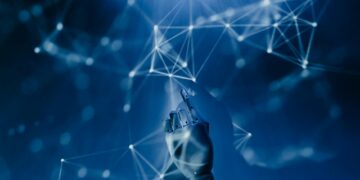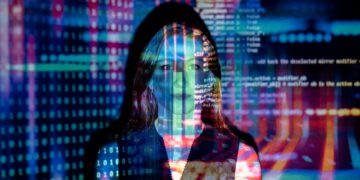The dawn of generative artificial intelligence has arrived with an almost dizzying speed, transforming the digital landscape and rapidly redefining the very fabric of our lives. From the way we work and collaborate to the fundamental essence of creativity and art, AI systems are no longer a futuristic concept but an immediate, tangible force. They are writing code, composing music, designing products, and generating text with unprecedented sophistication. As these powerful tools become increasingly integrated into our daily routines and societal structures, a critical question emerges: Are we, as individuals, businesses, and a global society, truly ready for the profound and multifaceted ripple effects that generative AI is poised to unleash?
The economic earthquake: Reshaping labor and value
One of the most immediate and impactful ripple effects of generative AI is its potential to radically alter the economic landscape. The narrative often swings between mass job displacement and the creation of entirely new roles, but the reality is likely a complex blend of both. AI’s ability to automate not just repetitive manual tasks but also cognitive, creative, and analytical functions means professions once thought immune – such as graphic design, content writing, coding, and even aspects of legal work – are now within its scope. This necessitates a rapid re-evaluation of skills and a societal commitment to widespread reskilling and upskilling initiatives.
The challenge isn’t merely about jobs lost, but about how value is generated and distributed. If AI can produce vast quantities of high-quality content or complex solutions at minimal cost, what happens to the market value of human labor in those domains? We must prepare for potential increases in economic inequality if access to AI tools and the skills to leverage them effectively are not widely distributed. Conversely, AI can augment human capabilities, allowing individuals and small businesses to achieve outputs previously requiring large teams, thus potentially democratizing certain industries. Understanding this dynamic shift is crucial for policymakers, educators, and the workforce alike.
Consider the potential shifts in job demand:
| Category | Jobs Potentially Augmented/Displaced by GenAI | New/Enhanced Roles Created by GenAI |
|---|---|---|
| Content Creation | Junior Copywriters, Basic Graphic Designers, Entry-level Translators | AI Prompt Engineers, AI Content Strategists, Ethical AI Auditors |
| Software Development | Routine Coders, Debuggers | AI Model Trainers, AI System Integrators, AI Security Analysts |
| Customer Service | Basic Call Center Operators | AI Experience Designers, AI Support Specialists |
| Data Analysis | Repetitive Data Entry, Basic Report Generators | Advanced Data Scientists, AI Data Ethicists |
Creativity reimagined: Authorship, authenticity, and ethics
Generative AI’s foray into creative domains presents a profound philosophical and practical challenge. When an AI can compose a symphony, paint a masterpiece, or write a novel that is indistinguishable from human work, what does it mean to be an artist? Who holds the copyright? The questions extend beyond mere ownership to the very definition of creativity and authenticity. The rise of synthetic media, including deepfakes, also poses significant threats, blurring the lines between reality and fabrication and potentially fueling misinformation campaigns on an unprecedented scale.
This redefinition of creativity demands a societal dialogue on the value of human touch, originality, and the ethical use of AI. It’s not about prohibiting AI’s creative output but about establishing clear guidelines for disclosure, attribution, and responsible application. For creators, the challenge becomes how to leverage AI as a powerful tool to augment their capabilities, pushing the boundaries of what’s possible, rather than being replaced by it. It fosters a new form of human-AI collaboration, where the human provides the vision, critique, and ethical oversight, while the AI executes and explores variations.
The educational imperative: Preparing future generations
Given the transformative power of generative AI, our educational systems are facing an urgent imperative to adapt. Traditional models focused on rote memorization and standardized testing are increasingly obsolete in a world where AI can access and process information far more efficiently than any human. The focus must shift from ‘what to learn’ to ‘how to learn’ and ‘how to think critically’ about information generated or processed by AI.
Future generations need not just digital literacy, but AI literacy – understanding how these models work, their limitations, their biases, and their ethical implications. Skills such as critical thinking, problem-solving, creativity, collaboration, ethical reasoning, and adaptability will become paramount. Education must foster human qualities that AI cannot replicate: empathy, intuition, and the ability to formulate complex, open-ended questions. Preparing students for a future intertwined with AI means equipping them with the meta-skills to continuously learn, unlearn, and relearn throughout their lives.
Navigating the ethical labyrinth: Bias, control, and governance
Beneath the surface of generative AI’s impressive capabilities lies a complex ethical labyrinth that society is only just beginning to explore. A primary concern is algorithmic bias, where AI models, trained on vast datasets reflecting existing societal biases, perpetuate and amplify discrimination in areas like hiring, lending, or even criminal justice. Ensuring fairness, transparency, and accountability in AI decision-making is a monumental challenge.
Furthermore, the rapid evolution of these powerful systems raises questions about control and governance. Who decides how these AIs are developed, deployed, and regulated? What mechanisms are in place to prevent misuse, whether intentional or accidental? There is an urgent need for robust regulatory frameworks, international cooperation, and a global ethical discourse to guide the responsible development and deployment of generative AI. This includes considerations for data privacy, intellectual property rights, the potential for autonomous decision-making, and the long-term societal impacts on human agency and well-being. Proactive ethical design, auditing, and public participation are essential to mitigate risks and ensure that AI serves humanity’s best interests.
The rapid ascent of generative AI is undoubtedly one of the defining shifts of our era, reshaping everything from our economic structures to the very nature of human creativity and education. As we’ve explored, its ripple effects touch upon job markets, artistic expression, learning paradigms, and profound ethical dilemmas. While the challenges are formidable – from potential job displacement and the proliferation of misinformation to algorithmic bias and governance gaps – the opportunities for augmentation, innovation, and societal progress are equally immense. Our readiness for this new era hinges not on resistance, but on proactive engagement. It requires a collective commitment to intelligent regulation, adaptive educational reform, robust ethical frameworks, and a continuous societal dialogue to ensure that generative AI is developed and deployed responsibly, steering its immense power towards a future that benefits all of humanity.


















